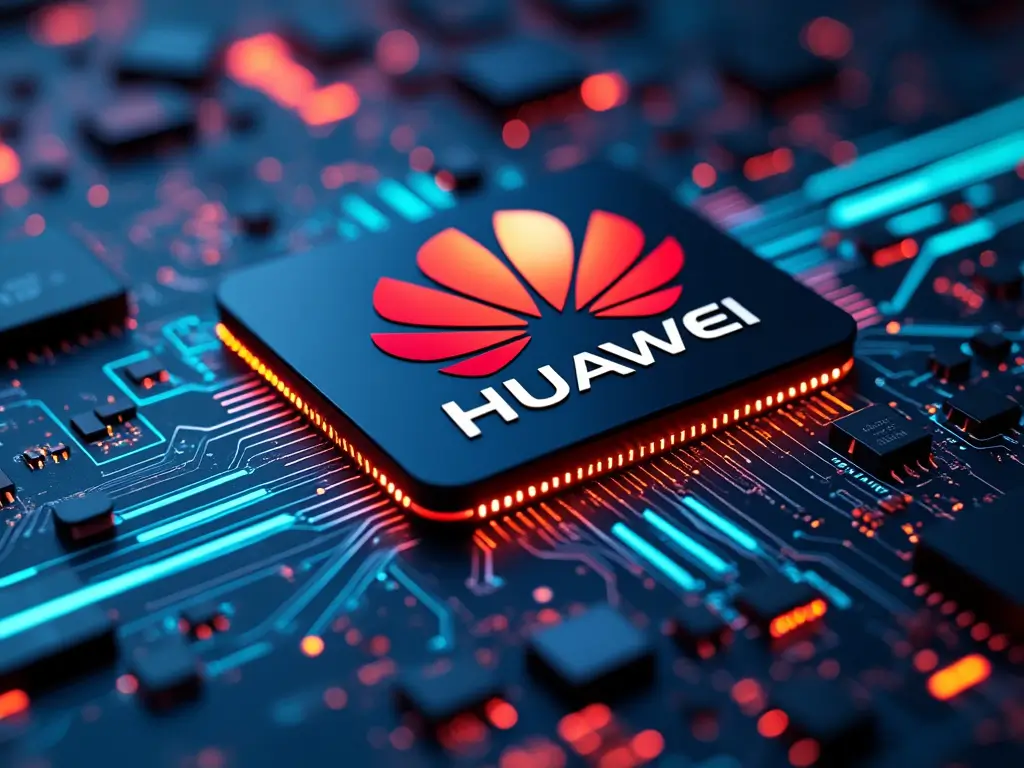Huawei's AI Chip Strategy: Rivaling Nvidia Amid U.S. Sanctions and Geopolitical Tensions

Huawei's AI Chip Strategy Amid U.S.-China Competition
Introduction of the Ascend 910C Chip
Huawei is preparing to introduce its latest artificial intelligence chip, the Ascend 910C, designed to rival Nvidia's H100 chip in performance. This initiative is a strategic component of Huawei's larger endeavor to establish itself as a key player in the AI chip market, despite facing stringent U.S. sanctions.
The development and prospective release of the Ascend 910C signifies Huawei's unwavering commitment to advancing in the AI technology sphere. By positioning itself as a competitive alternative to Nvidia, Huawei aims to capture a significant share of the market within China.
Testing and Market Penetration
Huawei has initiated trials of the Ascend 910C chip with several potential clients in China, including prominent server manufacturers and internet companies. An earlier model, the Ascend 910B, has already been integrated into numerous leading large language models in China, demonstrating its efficacy and garnering industry interest.
The comparison between the Ascend 910C and Nvidia's H100, alongside the Ascend 910B and Nvidia's A100, underscores Huawei's potential to serve as a credible substitute for Nvidia products in the Chinese market. This positions Huawei strategically to leverage increased local support amid geopolitical tensions.
Challenges Due to U.S. Sanctions
Despite significant achievements, Huawei faces considerable obstacles due to ongoing U.S. sanctions. These restrictions have necessitated that Huawei stockpile high-bandwidth memory chips in anticipation of potential future curbs. Production schedules have also experienced delays due to limited access to essential components and manufacturing tools.
Nevertheless, the backing of the Chinese government is proving to be a vital advantage for Huawei. Encouraging local businesses to adopt domestically-produced AI chips, such as those from Huawei, is part of China's grander strategy to enhance its semiconductor industry resilience and reduce dependence on foreign technology.
Potential Impact on the Market
If Huawei's production of the Ascend 910C chip proceeds without further U.S. interferences, it poses a significant threat to Nvidia's market share in China. Analysts forecast the possibility of Huawei producing between 1.3 to 1.4 million 910C chips next year, potentially outstripping Nvidia's sales in the Chinese region.
Nvidia, in response, has created less powerful variations of its chips, like the H20, to adhere to U.S. export regulations. These variants have experienced mixed reviews in China, with initial reluctance amongst clients turning to increased orders post-confirmation of favorable performance and price adjustments.
Growth of China's AI Sector
Despite the constraints imposed by the U.S., China's AI sector continues to flourish. Key players such as ByteDance and Alibaba are heavily investing in advancing AI technologies. Huawei's progress in this domain is instrumental in bolstering this growth and offering viable alternatives to Nvidia's product lineup.
China's significant investment in the semiconductor sector, highlighted by a recent $47.5 billion national fund, underscores the strategic importance placed on technological self-sufficiency. Such state support is critical for enterprises like Huawei to navigate the challenges induced by international sanctions.
Geopolitical Implications
The competitive dynamic between Huawei and Nvidia is emblematic of a broader geopolitical struggle where AI technology is perceived as a linchpin for military and geopolitical prowess. The race for AI dominance emphasizes the crucial role of AI investments in national security and geopolitical strategy, making Huawei's advancements all the more significant within this global context.

